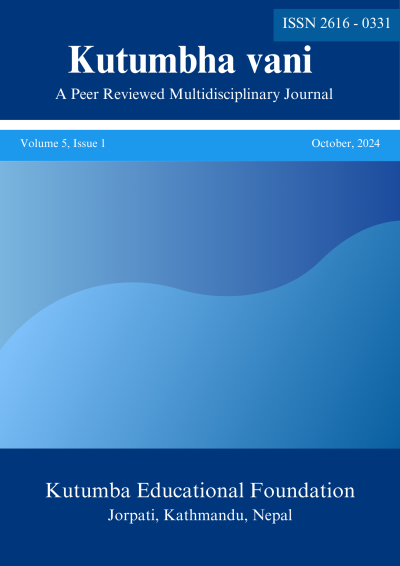Challenges and Opportunities in Empowering Leadership: An Emerging Trend in Musikot, Rukum West
DOI:
https://doi.org/10.3126/kv.v5i1.70887Keywords:
Indigenous, Leadership, Women, Challenges, political partiesAbstract
Indigenous communities in Nepal have historically faced marginalization, with limited access to resources and decision-making roles. However, recent years have seen a notable change, particularly in Musikot, Rukum West, where indigenous women are increasingly assuming leadership roles across various sectors. This study delves into the rise of indigenous women's leadership examining the patterns of its emergence, the factors promoting their political engagement, and the primary challenges they encounter. Despite the increasing presence of indigenous women in leadership, they continue to face significant obstacles rooted in deep-seated patriarchal norms and structures, particularly in political and governmental arenas. These impediments include discouraging organizational dynamics, societal biases, familial obligations, and cultural stereotypes that perpetuate their underrepresentation. Challenges specific to political parties, such as limited opportunities for advancement and insufficient support mechanisms, further complicate these issues. To foster indigenous women’s leadership, which is vital for social inclusion and democratic governance, comprehensive strategies are necessary. These include promoting equal opportunities, economic empowerment, enhancing access to education and healthcare, and adhering to international norms. Implementing targeted policy interventions is essential to ensure the sustainable political involvement and leadership of indigenous women in Musikot, Rukum West.




